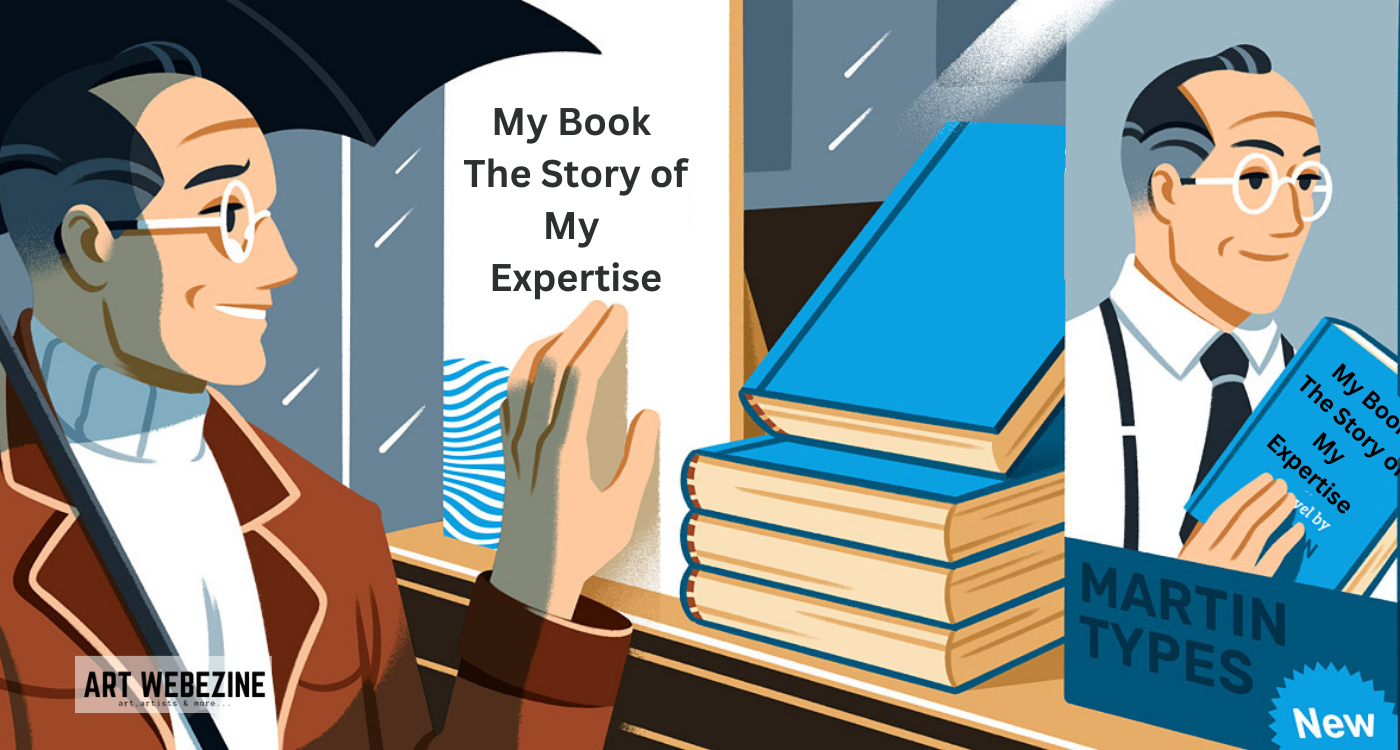The rise of self-publishing has transformed how authors share their stories with the world, empowering writers to take their destiny into their own hands. In this guide, we’ll navigate the landscape of self-publishing, explore the art of writing, and understand why publishing in today’s world is more accessible and essential than ever before. Whether you’re an aspiring author or a seasoned writer, join us on this journey to craft your path to successful self-publishing.
Navigating Self-Publishing: A Simple Introduction to Writing and Publishing

Self-publishing has been around for centuries, but it has become much more accessible and affordable in recent years. The rise of e-books and print-on-demand technology has made it possible for anyone to publish their book without having to invest in a large upfront cost.
There are many reasons why authors choose to self-publish. Some authors want to have complete creative control over their work. Others are frustrated with the traditional publishing process, which can be long and competitive. Still others are simply eager to get their book out to the world as quickly as possible.
Writing and publishing are important for a number of reasons. First, they allow us to share our stories and ideas with the world. Second, they can help us to connect with others who share our interests. Third, they can be a source of creative expression and personal growth.
In today’s world, writing and publishing are more important than ever before. We live in a globalized society where information is shared instantly. The ability to write and communicate effectively is essential for success in all aspects of our lives.
Self-Publishing vs. Traditional Publishing
First, decide if you would rather be self-published or traditionally published. Although they are very different, both paths are respectable and feasible. In traditional publishing, you have to query agents in order to find one. In an attempt to get an agent interested enough in their work to represent them, writers submit materials such as synopses, query letters, and first chapters. After the author is accepted, the agent locates a good publishing house, and everyone works together to get the book published from there.
Self-publishing requires a lot more involvement from the author directly. Typically, the author will take care of the book’s editing, promotion, printing, and distribution—often with help from outside sources. Although reaching out to agents is not required, writers should nevertheless be prepared to explain their book’s selling points. The author is the best defender of their work when self-publishing.
Self-Publishing from Writing, Publishing, and Marketing Your Book
Self-publishing is a great way to get your book into the world, but it can be a daunting task. Here is a step-by-step guide to help you through the process:
- Prepare your manuscript. This includes writing, editing, and proofreading your book. Make sure to get feedback from beta readers or professional editors to ensure that your book is polished and ready for publication.
- Design a book cover. Your book cover is the first thing potential readers will see, so make sure it is eye-catching and relevant to your book’s content. You can hire a professional designer or use a free or paid design tool to create your own cover.
- Format your book for print and e-books. This includes choosing a font, font size, and margin settings. You may also need to create a table of contents and an index.
- Choose a publishing platform. There are many different self-publishing platforms available, such as Amazon KDP, IngramSpark, and Barnes & Noble Press. Choose a platform that offers the features and services that you need.
- Publish your book! Once you have uploaded your manuscript and cover to your chosen platform, your book will be available for purchase within a few days.
- Market your book. Don’t just sit back and wait for people to find your book. Promote your book on social media, your website, and through email marketing. You can also reach out to book bloggers and reviewers to see if they would be interested in featuring your book.
Here are some additional tips for self-publishing success:
- Write a great book. This is the most important thing you can do to increase your chances of success. Make sure your book is well-written, engaging, and well-edited.
- Build an author platform. This is your online presence as an author. You can build an author platform by creating a website, writing blog posts, and engaging with readers on social media.
- Price your book competitively. Do some research to see how other books in your genre are priced. You want to price your book competitively, but you also want to make sure that you are making a profit.
- Market your book effectively. There are many different ways to market your book. Experiment with different strategies to see what works best for you.
Self-publishing can be a lot of work, but it is also a rewarding experience. By following these tips, you can increase your chances of success and get your book into the hands of readers.
Empowering Stories: Self-Publishing Successes in Writing and Publishing

let’s delve a bit deeper into these inspiring self-publishing success stories using straightforward language:
Amanda Hocking: Amanda Hocking, a renowned author, embarked on a self-publishing journey by sharing her books on Amazon for free. Her storytelling skills attracted a loyal reader base, leading her to charge a modest fee for her e-books. Over 1 million were sold, and her stories were later adapted into films and television shows. Her success serves as a testament to the power of self-publishing for writers.
Hugh Howey: Hugh Howey, like Amanda, gained fame through self-publishing, with his Wool trilogy soaring on Amazon’s bestsellers. His writing resonated with readers, and his trilogy is now being adapted into a television series, solidifying his place among self-publishing success stories.
Andy Weir: Andy Weir’s novel “The Martian” was self-published and quickly gained popularity, leading to its adaptation into a major Hollywood film starring Matt Damon. The film received critical acclaim and commercial success, showcasing the potential of self-published works to significantly impact a business.
Self-publishing success stories showcase that it’s not just for a select few; it’s a platform for any talented writer to share their stories. These authors’ journeys serve as motivation for aspiring writers, showcasing their determination and commitment to honing their craft, leading to remarkable success.
Overcoming Writer’s Dealing with Rejection, Self-Doubt, and Maintaining Motivation
Dealing with rejection and criticism: Every author faces rejection and criticism at some point in their career. It is important to remember that rejection and criticism are a normal part of the writing process. Don’t let them discourage you.
Here are a few tips for dealing with rejection and criticism:
- Don’t take it personally. Rejection is often a reflection of the publisher’s needs, not the quality of your writing.
- Learn from it. Try to understand why your manuscript was rejected. Were there any specific areas that needed improvement?
- Keep writing. Don’t let rejection stop you from writing. Keep writing and submitting your work. The more you write, the better you will become at it.
Managing self-doubt and writer’s block: Self-doubt and writer’s block are common challenges that all writers face.
Here are a few tips for managing self-doubt and writer’s block:
- Believe in yourself. Remind yourself that you are a talented writer and that you have something important to say.
- Set small goals. Don’t try to write the entire book in one sitting. Set small goals, such as writing 500 words or finishing a chapter.
- Take breaks. If you are feeling stuck, take a break and come back to your writing later. Go for a walk, listen to music, or do something else that you enjoy.
- Join a writing group. Joining a writing group can help you to stay motivated and to get feedback on your work.
Maintaining motivation: It is important to stay motivated when you are self-publishing a book. Here are a few tips for maintaining motivation:
- Set realistic goals. Don’t expect to become a bestseller overnight. Set realistic goals for yourself, such as selling a certain number of books or reaching a certain number of readers.
- Celebrate your successes. No matter how small your successes may seem, celebrate them. This will help you to stay motivated and to keep moving forward.
- Find a support group. Surround yourself with people who believe in you and who will support you on your journey.
Resources for Self-Publishing
Tools and software for authors: There are a number of different writing tools and software programs that can help you to self-publish your book. Here are a few popular options:
- Writing software: Writing software programs such as Microsoft Word and Scrivener can help you to write, edit, and format your manuscript.
- Book cover design software: Book cover design software programs such as Canva and Adobe Photoshop can help you to design a professional-looking book cover.
- Self-publishing platforms: Self-publishing platforms such as Amazon KDP and IngramSpark make it easy to publish and distribute your book to online and brick-and-mortar retailers.
Self-publishing communities and forums: There are a number of online self-publishing communities and forums where you can get help and support from other self-published authors. Here are a few popular options:
- The Self-Publishing Podcast: The Self-Publishing Podcast is a weekly podcast that features interviews with successful self-published authors.
- Indie Author Talk: Indie Author Talk is a website and online community that provides resources and support for self-published authors.
- ALLi: ALLi (Alliance of Independent Authors) is a non-profit organization that provides support and resources for self-published authors.
Recommended reading: There are a number of books that can help you to learn more about self-publishing. Here are a few recommended books:
Conclusion
Self-publishing is a powerful way to get your book into the world, but it’s a journey that requires time, effort, and dedication. It’s an empowering process that gives you complete control over the writing, marketing, and distribution of your book. As an aspiring author, I encourage you to pursue this challenging yet rewarding journey, believing in yourself and your work, and never giving up on your dreams.






